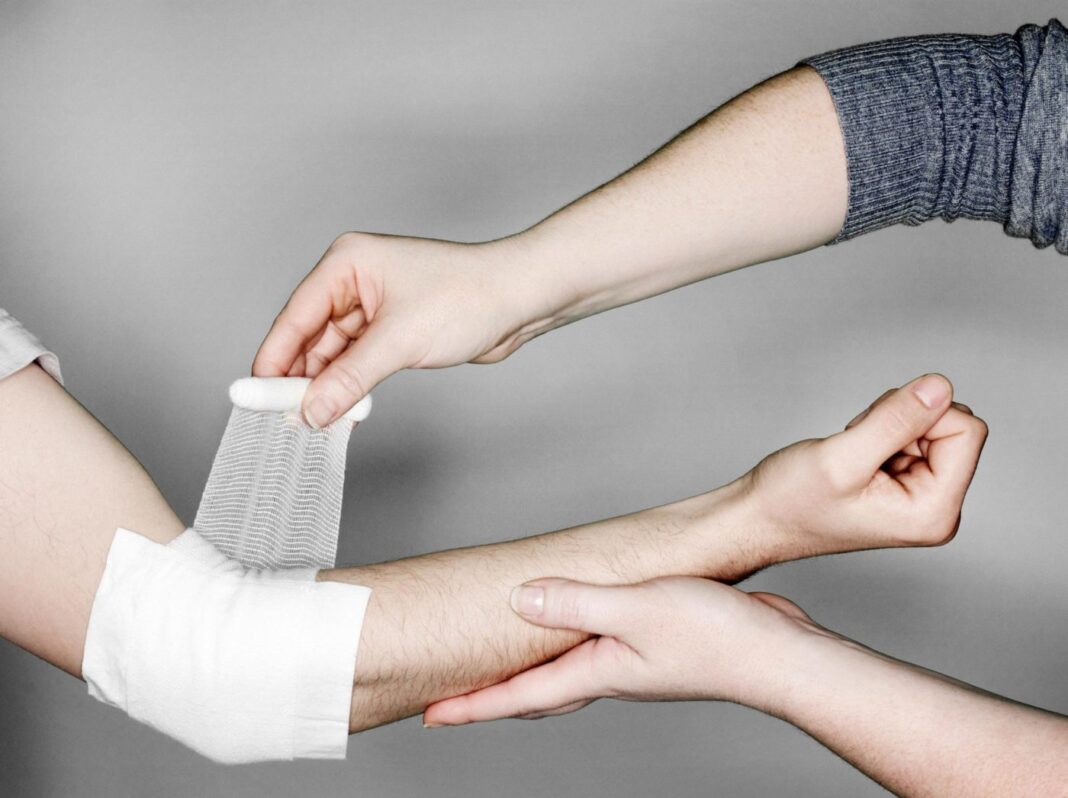Credit: John Rensten/Getty Images
Researchers say they have completed a first-of-its-kind study that determines that genetics may play a role in how wounds heal.
Caleb Phillips, PhD, an assistant professor at Texas Tech University and director of the Phillips Laboratory in the Department of Biological Sciences, and doctoral student Craig Tipton led the study “Patient genetics is linked to chronic wound microbiome composition and healing“, published in PLOS Pathogens.
“The clinical importance of microbiomes to the chronicity of wounds is widely appreciated, yet little is understood about patient-specific processes shaping wound microbiome composition. Here, a two-cohort microbiome-genome wide association study is presented through which patient genomic loci associated with chronic wound microbiome diversity were identified,” write the investigators.
“Further investigation revealed that alternative TLN2 and ZNF521 genotypes explained significant inter-patient variation in relative abundance of two key pathogens, Pseudomonas aeruginosa and Staphylococcus epidermidis. Wound diversity was lowest in Pseudomonas aeruginosa infected wounds, and decreasing wound diversity had a significant negative linear relationship with healing rate. In addition to microbiome characteristics, age, diabetic status, and genetic ancestry all significantly influenced healing.”
“Using structural equation modeling to identify common variance among SNPs, six loci were sufficient to explain 53% of variation in wound microbiome diversity, which was a 10% increase over traditional multiple regression. Focusing on TLN2, genotype at rs8031916 explained expression differences of alternative transcripts that differ in inclusion of important focal adhesion binding domains. Such differences are hypothesized to relate to wound microbiomes and healing through effects on bacterial exploitation of focal adhesions and/or cellular migration. Related, other associated loci were functionally enriched, often with roles in cytoskeletal dynamics.”
“This study, being the first to identify patient genetic determinants for wound microbiomes and healing, implicates genetic variation determining cellular adhesion phenotypes as important drivers of infection type. The identification of predictive biomarkers for chronic wound microbiomes may serve as risk factors and guide treatment by informing patient-specific tendencies of infection.”
Phillips, who also serves as Curator of Genetic Resources at the Natural Science Research Laboratory’s (NSRL) Robert J. Baker Genetic Resources Collection, said the study determined that certain genes are associated with the number of bacteria and abundance of common pathogens in wounds. The microbiome can determine how a wound heals and how long that process takes. The research also showed that the more diversity within a wound microbiome, the less time it took to heal.
Patients visiting Lubbock’s Southwest Regional Wound Care Center (SWRWCC) for the care of a lower-extremity infected wound consented to participation in the study and provided samples from their wound(s) and from a cheek swab. The study used microbiome profiling, genome fingerprinting, wet lab validation, imaging and model development to analyze the samples and data, and included researchers from Texas Tech, the Texas Tech University Health Science Center (TTUHSC), the SWRWCC, and the University of North Texas Health Science Center at Fort Worth (UNTHSC).
“We showed that there are identifiable locations in people’s genome where, depending on their genotype, they tend to get infections by specific bacteria,” Phillips said. “The different genomic locations identified tend to be related in terms of the types of genes they are close to and may regulate. A working hypothesis emerging from the research is that genetic differences influencing genes encoding the way our cells interact with the environment and each other are important for infection differences.”
Though there is still work to be done before the research directly benefits patients, Tipton noted the study is an important and promising step in that direction.
“Personalized medicine is a current hot topic in modern healthcare, where the goal is to identify inherent differences within individuals that may cause them to be impacted differently by disease and finding treatments that are well-suited and tailored to the individual and may contribute to better patient outcomes,” explained Tipton.
“Our project furthers two equally-interesting avenues of research with potential translation to the clinic. In one, it is our goal to develop robust genomic predictive models that could help physicians to determine a patient’s risk for chronic wound infection, particularly to specific bacteria.
“In the second, this work helps to inform how genetic variation in patients can influence microbiome-host interactions and wound infection pathogenesis. By further studying infection pathogenesis and how these complex microbial communities interact, it may be possible to improve existing therapies or to develop new therapeutic strategies altogether.”
Phillips added that he looks forward to continuing his research at Texas Tech. His lab is developing a follow-up study that he hopes will collect enough information to create accurate predictive models. They also are working on a study exploring how a person’s location in the U.S. shapes differences in chronic wound microbiomes.



